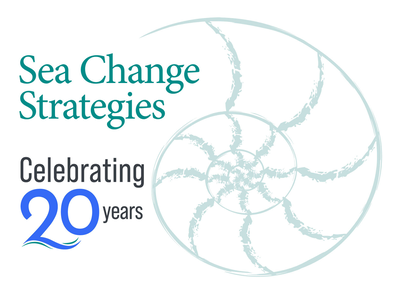What Should TNC Say?
A front page Washington Post piece yesterday raised questions about the practice by major conservation organizations, notably the Nature Conservancy, of accepting contributions from BP and other petroleum, mining, chemical, etc. companies.
A guest blog post by Nancy Schwartz in the usually letter perfect Nonprofit Marketing Blog on how a TNC communications director should react diverges sufficiently from my own view that I feel compelled to respond.
First of all full disclosure: I was from 1990-99 the VP for Communications at World Wildlife Fund, an organization that accepts contributions from major polluters like BP. I currently do work on retainer for Conservation International, which also accepts corporate donations, and Environmental Defense Fund, which contrary to the Post’s implication does not accept corporate contributions.
I do not think there is anything inherently wrong with a conservation group accepting these donations, and most donors to these groups agree according to all of the opinion research I have seen. Most conservation donors are of the view that the needs are so great that donations should be accepted from all but the most morally reprehensible sources.
What makes the situation muddy is that some of these groups accept contributions and at the same time purport to be reforming the way their corporate benefactors conduct their extractive or polluting operations.
That is exactly the case with CI, WWF and TNC.
It’s a defensible and legitimate position, and one can point to instances of ecological progress by industries that owe something to these partnerships.
It happens not to be a position I personally share.
I much prefer the tack EDF takes, which is to refuse all corporate contributions, but to engage constructively with corporate America to improve its environmental practices. EDF has much to show for its efforts, from helping McDonald’s to abandon the dreaded Styrofoam clamshells to getting Fedex to adopt hybrid vehicles.
But the TNC position is legal and commonplace and TNC has been right to be non-defensive and straightforward in explaining its approach.
I would also disagree with some of Nancy’s tactical advice. The first thing you learn after dozens of communications fire drills is not to make things worse. If you get attacked in the Washington Post, don’t go on Twitter to make your case. You are basically just advertising the controversy to an audience that may never have seen the story.
Nancy also says not to use the CEO or a Board member as a spokesperson. I can’t for the life of me think why that would be.
Here’s my advice for handling crisis communications, based on a little more experience than I care to think about:
- First do no harm. Don’t magnify the problem by distributing “your side of the story” to audiences who may never hear about the controversy in the first place.
- Prepare your position in a succinct set of talking points. Do it in an affirmative way: make clear what the organization’s official policy is and how it helps to meet its urgent mission. If the attack is distorted or wrong, specifically show that in your talking points.
- Communicate from the inside out. Make sure staff and Board hear from you first; they have the most at stake. Beyond that, don’t communicate pro-actively – See #1 above. Each external communications department will need to develop rapid response materials for its particular audience based on the key talking points.
- Use your most credible spokespeople. For something like this, I think the CEO is exactly the right person to put on camera, unless he or she is a dufus. Why put a scientist out there to discuss your corporate donations policy? That makes no sense.
- Don’t ever lie. You’ll get caught. Don’t bullshit. Your efforts at “spin control” will come back to haunt you.
- Take your licks. With social media and the perpetual news cycle, the story will almost spread to some degree. You can’t control it. If you’ve done nothing wrong (as is the case with TNC), the story will be pushed out of the way the next time Fergie takes a bribe or the unpronounceable volcano in Iceland burps and closes Europe down.
Don’t get me wrong, my rage at BP, at the corrupt inspectors, and the keystone cops response to the spill knows no bounds. I think BP officials should be in jail if they knew or had reason to know safety was being compromised (as appears to be the case).
And if TNC knew or had reason to know that BP was acting illegally, then perhaps they should return BP’s contributions. But that doesn’t appear to be the case.
Bottom line — Explain calmly, don’t make things worse, and live to fight another day.
